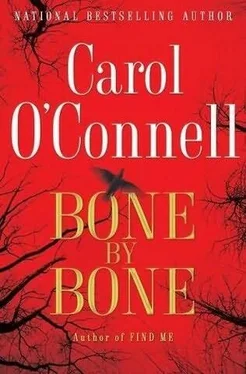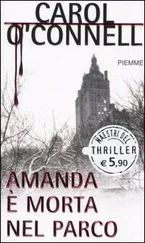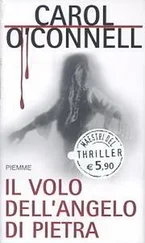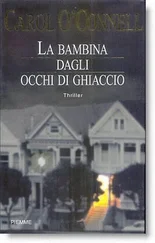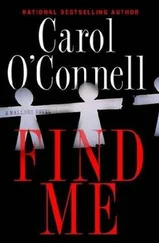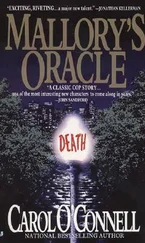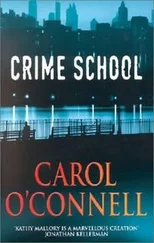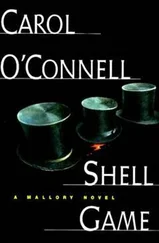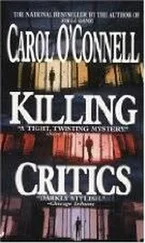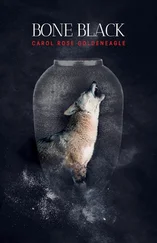"No, sir. I left the Army." Oren stared at the cane, the symbol of a life derailed-all that they had in common.
"I'm told that CID agents wear street clothes during an investigation, and they don't have to salute superior officers. That must've given you quite a sense of power."
"Mostly, I just liked the idea of wearing my cowboy boots on duty." And now the pleasantries were officially over. "I know you investigated my brother's disappearance. The sheriff thinks my father hired you."
"Judge Hobbs?" A puff of air escaped Swahn's lips in a mild show of incredulity. "How much sense would that make?"
"None at all. He would've hired a first-rate agency before he'd use an ex-cop with only one year on the job. For all I know, my father did hire somebody, but it wasn't you."
Swahn's nod was almost imperceptible, the small acknowledgment of a glove thrown down, a contest begun. "Judge Hobbs never hired an investigator. I would've noticed that kind of activity in a small town. And he never asked for help from the state Justice Department-even though he had the political pull to call them in." The man addressed the handle of his cane. "Don't you find that odd?" He raised his eyes to Oren's. "By that, I mean your father's lack of interest."
"Josh was a missing person. There was no evidence of foul play."
"Of course there was." Swahn's tone said, Liar. "Everyone knew that boy didn't run away. Your brother had a bank account, but he left his cash behind. He didn't take any clothes, either. And we both know he wasn't lost. This town has a wonderful reputation for finding people who lose their way in the woods. They always found you, didn't they?"
Oren ignored the question, knowing better than to fall into this old trap of turnabout, the interrogation of the interrogator. He had to wonder about Swahn's inside information; no newspaper account would have mentioned an abandoned bank account. And how would this man know that Josh had not packed any clothing? His brother's knapsack had never been found.
"Now," said Swahn, "if I wanted to bury an investigation, I'd do what your father did. I'd leave it in the hands of the County Sheriff 's Office.
That department is a joke, and I'm sure that made it easier to whisk you out of town-out of the sheriff's jurisdiction." He raised his cane to point it toward Oren's chest, his heart. "When Judge Hobbs sent you away that summer, did he suspect you of killing your brother?" The tip of the cane settled to the floor, and Swahn rested both hands on the silver handle as he leaned forward. "Or do you think that venerable old man murdered his own child?"
The next shot belonged to Oren. He sat down in an armchair and leaned back into the plush upholstery. Outwardly, he was unrattled, a man in repose and almost drowsing. "Hard to believe you were a cop." He let that settle in as a blunt insult and then added, "You don't talk like one." His adversary's accent made him a transplant from the world of upscale Bostonians, possibly uprooted in childhood, for the geographical marker was faint. This and the advanced college degrees would have been enough to alienate William Swahn from his brother officers; he was so obviously not cut from the same blue cloth. "You sound more like a college professor."
"I'm a guest lecturer at Berkeley. My area is criminology, but I'm sure the sheriff told you that."
What else had Cable Babitt failed to mention about this man?
"How well did you know my brother?"
"I never met him."
This could be true despite the evidence of the Letter Man photographs in the post office, three shots taken at close quarters. His little brother had been a thief of sorts, stealing people's images and running off with them. Sometimes a subject would hear the click of the camera and turn to see an empty space where a boy had been standing.
Oren rose to his feet and turned to the shelves, pretending interest in the titles on the book spines, while he considered the source of Swahn's inside information. "Let's talk about your client."
I told the sheriff-several times-no one paid me to-"
"I didn't ask who paid you." Oren faced Swahn, wanting to see the man's eyes when he said, "Hannah Rice was the client." Satisfied with the reaction, he pressed on. "Hannah couldn't afford the day rate of a PI, but then-you're not a licensed investigator." He turned back to the shelves and trailed one finger from book to book, as if this matter meant very little to him. "And you don't need money, do you? That's why she picked you." He glanced back over one shoulder. "Oh, I'm sorry. Maybe you thought she came here because you were so smart?"
Swahn's eyebrows rose in a subtle touché, and the man almost smiled with approval-almost. "I don't pretend to know how Miss Rice's mind works. She's the only walking enigma I've ever met. And there's something about her speech. She's not from this part of the country, is she? Sometimes, when she's tired, I think I hear the ghost of a southern accent."
That touch of the Southland in Hannah's voice had begun to die off in the early years of Oren's childhood, along with idioms and odd words. He shrugged and splayed his hands and said, "As far as I know, Hannah's always lived in Coventry."
This evidently passed as truth, for the older man seemed disappointed.
When billeted in the state of Tennessee for the duration of a manhunt, CID Agent Oren Hobbs had gotten a taste of the food and the regional dialect. He had realized then that Hannah Rice must have hailed from there, and this had led to another revelation: He knew every vital statistic in the life of the runaway soldier he hunted; he knew nothing about the woman who had raised him.
As a boy, he had been comfortable with the notion that the housekeeper had sprung to life on the day his mother was buried. At the age of three, Oren had been too young to remember Hannah's arrival in Coventry, but he knew the story told a hundred times: The judge had laid his dead wife to rest in the family plot and returned to his house in the company of neighbors, whose extra arms were needed to carry casseroles and baby Joshua. Oren had played the little man that day and walked everywhere on his own two toddler's legs, bumping into everything, "-blinded by tears, and batting away every hand that offered comfort." Those were his father's words.
Judge Henry Hobbs had always told the tale in the same way, word for word. "So we come back from the cemetery, and there's young Hannah- a stranger and a trespasser -standing on my front porch like she owns the place." The story had been repeated until the children's eyes had glazed over, and this segment of oral history was burned into their little brains. "Real brassy for a runt housebreaker," the judge would always say.
The young stranger, Hannah Rice, had greeted the funeral party and served them a feast made from scratch materials found in the pantry. Her bite-size bits of finger food-with three flavors apiece-lingered for years in the memories of all those present on that long-ago afternoon, but the fine coffee had been enough to ensure Hannah's legend in the neighborhood.
Her suitcase had been unpacked in the upstairs guest room hours before her future employer had even known of her existence, and the judge still had no idea who she was at the close of the funeral supper. That evening, while she cleaned up after the mourners, the judge had thought to ask for her name. Days later, they had come to terms on a salary, but he had never pried into her past.
That would have been rude.
Apart from a core of third- and fourth-generation lifers, there had always been a coming and going of residents. Some were attracted by the raw beauty of the coastline; others sought the privacy of in-country woodlands. One abiding charm of the place was the whole town's lack of curiosity about the outside world-as if a citizen's life had not begun until they set foot in Coventry. A fair number of outsiders had come here to hide themselves away until they could reinvent their lives or rest up from a chase. After a month or a decade, some of these people would decamp with no word of goodbye or forwarding address, but others stayed long enough to be buried in local ground. After thirty-four years, Hannah appeared to have staying power.
Читать дальше
